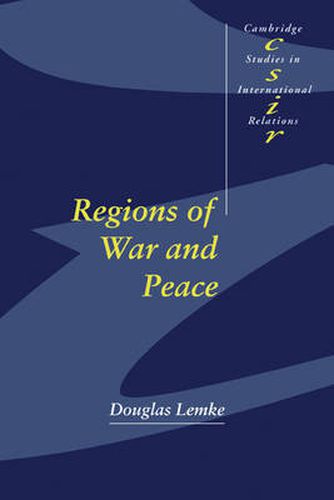Readings Newsletter
Become a Readings Member to make your shopping experience even easier.
Sign in or sign up for free!
You’re not far away from qualifying for FREE standard shipping within Australia
You’ve qualified for FREE standard shipping within Australia
The cart is loading…






In this contribution to the literature on the causes of war, Douglas Lemke asks whether the same factors affect minor powers as affect major ones. He investigates whether power parity and dissatisfaction with the status quo have an impact within Africa, the Far East, the Middle East and South America. Lemke argues that there are similarities across these regions and levels of power, and that parity and dissatisfaction are correlates of war around the world. The extent to which they increase the risk of war varies across regions, however, and the book looks at the possible sources of this cross-regional variation, concluding that differential progress toward development is the likely cause. This book will interest students and scholars of international relations and peace studies, as well as comparative politics and area studies.
$9.00 standard shipping within Australia
FREE standard shipping within Australia for orders over $100.00
Express & International shipping calculated at checkout
In this contribution to the literature on the causes of war, Douglas Lemke asks whether the same factors affect minor powers as affect major ones. He investigates whether power parity and dissatisfaction with the status quo have an impact within Africa, the Far East, the Middle East and South America. Lemke argues that there are similarities across these regions and levels of power, and that parity and dissatisfaction are correlates of war around the world. The extent to which they increase the risk of war varies across regions, however, and the book looks at the possible sources of this cross-regional variation, concluding that differential progress toward development is the likely cause. This book will interest students and scholars of international relations and peace studies, as well as comparative politics and area studies.